‘Cancer doesn’t care’: Citizen lobbyists unite to overcome Washington’s vile policies

Mary Catherine Johnson is a retired small business owner originally from outside of Rochester, NY. She voted three times for Donald Trump.
Lexy Mealing, who worked in a doctor’s office, is from Long Island. She is a Democrat.
But women share a common bond. They are both breast cancer survivors.
And when the American Cancer Society’s Cancer Action Network held its annual citizen lobbying day in Washington last month, Johnson and Mealing were among more than 500 volunteers pushing Congress to keep cancer research and support for cancer patients at the top of the national health care agenda.
The day is something of a ritual for groups like the cancer organization.
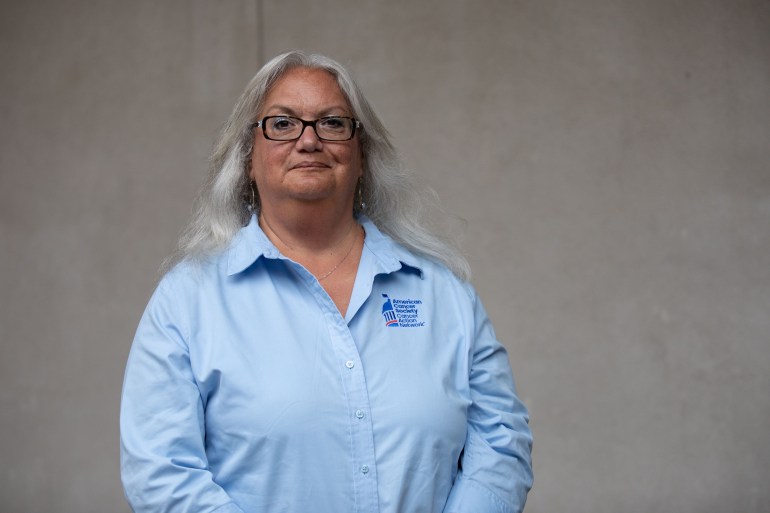
Mary Catherine Johnson is a breast cancer survivor and former small business owner. She lives outside of Rochester, New York. (Charlotte Kesl for KFF Health News)
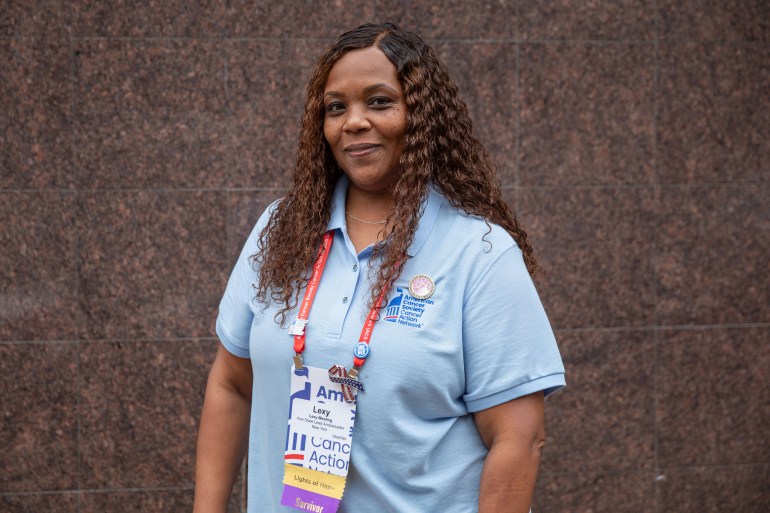
Lexy Mealing is a breast cancer survivor living on Long Island, New York. She worked in a medical office. (Charlotte Kesl for KFF Health News)
This year, it happened as Democrats and Republicans in Washington slid toward a budget impasse that resulted in a shutdown of the federal government. But these volunteers transcended their political differences and found common ground.
“Not a single person here has discussed whether you are a Democrat or a Republican,” said Mealing, one of 27 volunteers in the New York delegation. “Cancer doesn’t care.”
Each of the volunteer lobbyists has been affected in some way by the deadly disease, which is expected to kill more than 600,000 people in the United States this year.
Johnson said each of his mother’s 10 siblings died of cancer, as did a lifelong friend who died at age 57, leaving behind his wife and two young daughters.
Like many New York volunteers, Johnson also said she is worried about the state of politics today.
“I think we’re probably the most divided we’ve ever been,” she said. “It scares me. It scares me for my grandchildren.”
Katie Martin, a cancer volunteer from outside Buffalo, also worries. She and her daughter recently encountered political protesters shouting at each other in the street.
“My daughter stays silent and then starts asking, ‘What is that?’ And I don’t know how to explain it, because it doesn’t even make sense to me,” she said. “It’s very heartbreaking.”
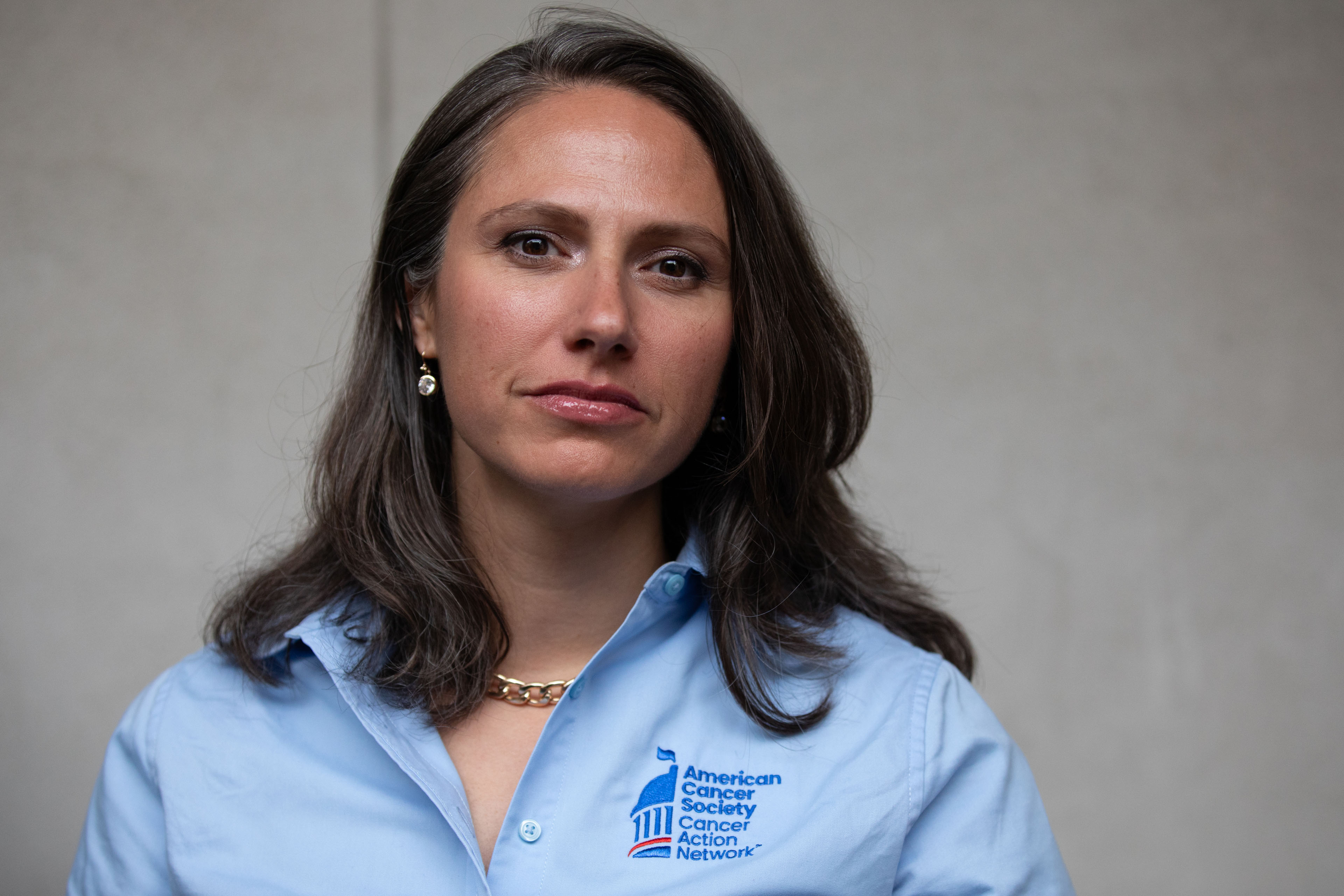
Mealing said she can barely watch the news these days. “A lot of Americans are very stressed. There’s a lot going on.”
Americans are indeed divided on many issues: immigration, guns, President Trump. But helping people with cancer and other serious illnesses has broad bipartisan support, polls show.
In a recent poll, 7 in 10 voters said it was very important that the federal government fund medical research. This included majorities of Democrats and Republicans.
“It’s rare in today’s environment to see numbers like this,” said Jarrett Lewis, a Republican pollster who conducted the patient group survey. “But almost everyone in this country knows someone who has had cancer.”
Similarly, a recent KFF poll found that three-quarters of American adults, including most Republicans who align with the Make America Great Again, or MAGA, movement, want Congress to expand subsidies that help Americans buy health insurance in the Affordable Care Act marketplaces.
These subsidies, essential for people with chronic illnesses such as cancer, are one of the main sticking points in the current budget impasse in Congress.
As cancer volunteers gathered at a conference hotel in Washington, they focused on their common agenda: increasing funding for cancer research, retaining insurance subsidies and expanding access to cancer screening.
“We might not agree politically. We might even disagree socially,” said Martin, the Buffalo-area volunteer. “But we can see beyond these differences because we are here for one cause.”
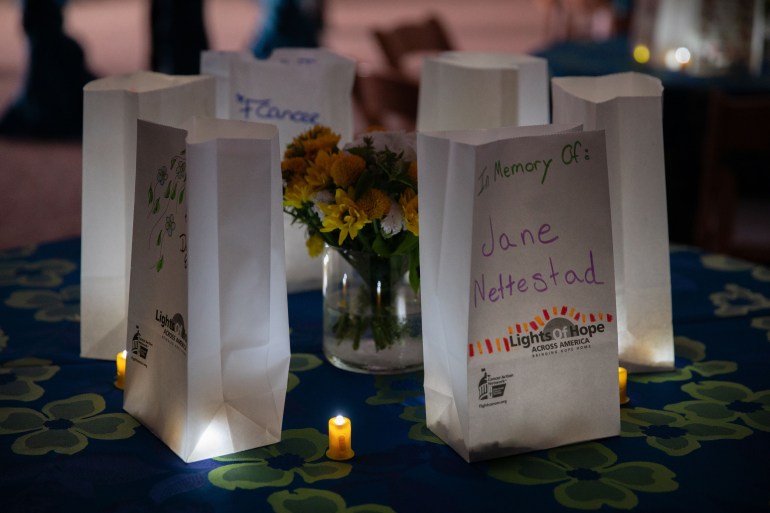
American Cancer Society Cancer Action Network volunteers from all 50 states decorated approximately 10,000 white paper bags with messages of hope and remembrance for people with cancer. (Charlotte Kesl for KFF Health News)
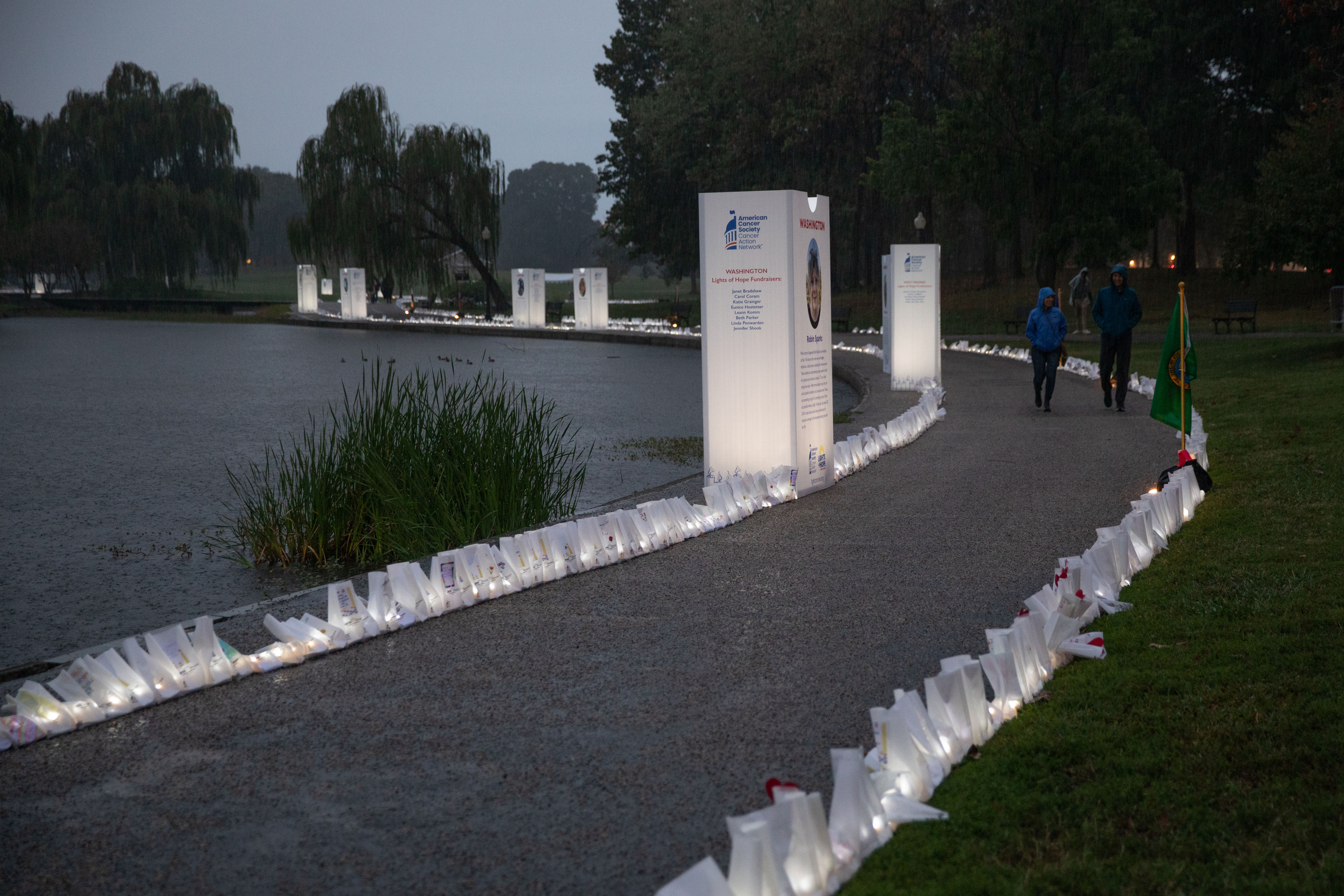
After visiting lawmakers on Capitol Hill, hundreds of volunteers from the American Cancer Society’s Cancer Action Network gathered for a candlelight vigil at Constitution Gardens along the National Mall in Washington. Each state had a pillar commemorating a former volunteer who died of cancer. (Charlotte Kesl for KFF Health News)
State delegations practiced the arguments they would make to their members of Congress. They went through the personal stories they would share. And they traded tips on how to deal with resistant staff and asking for a photo with a lawmaker.
On the morning of their lobbying day, they reconvened in a cavernous ballroom, dressed in matching blue polo shirts and armed with red informational flyers to drop off at each office they visited.
They got a pep talk from two college basketball coaches. Then they marched across town to Capitol Hill.
The army of volunteers – from every state in the country – attacked 484 of the 535 Senate and House offices.
Not every visit has been an unqualified victory. Many Republican lawmakers oppose expanding insurance subsidies, arguing they are too costly.
But lawmakers from both parties have backed increasing research funding and supporting more cancer screenings.
And New Yorkers felt good after that day. “It was amazing,” Mealing said at the end of the day. “You could just feel the feeling of ‘Everyone is stronger together.’ »
In the evening, volunteers met at the National Mall for a candlelight vigil. It was raining. The bagpipes were playing.
Around a pond near the Lincoln Memorial, some 10,000 tea lights glowed in small paper bags. Each fixture had a name – a life touched by cancer.
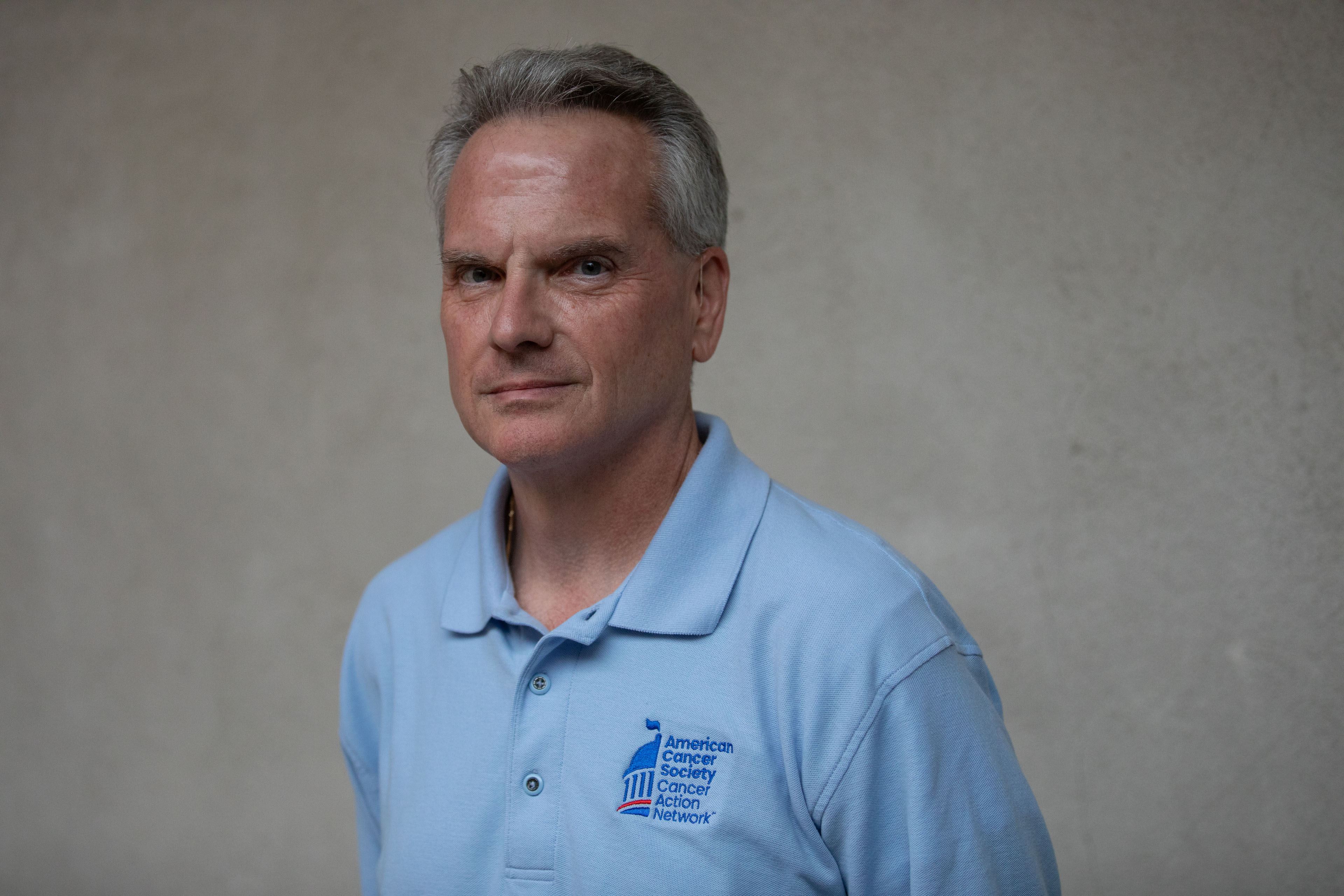
John Manna, another New Yorker, describes himself as a Reagan Republican whose father died of lung cancer. He reflected on the lessons this day could offer to a divided nation.
“Talk to people,” he said. “Get to know each other as people, and then you can understand each other’s positions. We have few disagreements, but, you know, we don’t attack each other. We talk and discuss it.”
Manna said he would come back next year.




